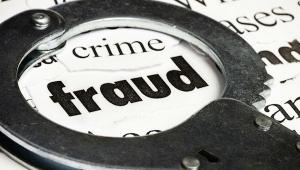It may not solve the revenue budget black hole but a local authority lottery can help their community projects or other good causes that are struggling to survive right now.
The first such scheme was set up by Aylesbury Vale District Council in 2015 and has funded schemes such as subsidised horse riding for children with autism, extra support groups for young carers and new equipment for local sports clubs.
Kate Brewster from the Council and marketing manager for their lottery told me: “It’s incredible to think that just two years from its launch, Vale Lottery has already raised more than £110,000 and local good causes are coming back to us and telling us about the difference that money is making.
Historically we’ve awarded grants to support these organisations. This is something which has seen a reduction following central government cuts. Vale Lottery works alongside our grants service but takes the council from provider to facilitator – we are providing the means for community groups to help themselves.”
The fortunate thing, if you are interested in starting a lottery, is that there are already 19 local authorities licensed by the Gambling Commission, so you don’t need to start from scratch! (A further eight have recently applied to join the club.)
Each local authority will have its own approach to such new initiatives but Kate Brewster says “Vale Lottery was set up within eight months. This included working on the business case, sourcing our external partner, getting council approval and working with the Gambling Commission.”
As regards ongoing costs these will vary but will include the annual licence fee and ensuring compliance with the terms of the licence. Marketing is also a likely requirement, however it’s worthwhile remembering that the legitimate costs of running the lottery can be subtracted from the proceeds up to the statutory maximum.
The basics are as follows:
- You need a licence from the Gambling Commission.
- If you run a lottery you must appoint a person to have overall management responsibility for the promotion and proper management of the lottery and for compliance with the regulatory regime as a whole. That person should be a senior manager who holds the relevant delegated authority.
- You can appoint an external lottery manager (ELM) to run all or part of your lottery, however, you as the holder of the lottery licence, are ultimately responsible for compliance (a register of ELMs is on the Commission’s website).
- You can run a lottery to raise funds to cover anything for which you (as a local authority) have the power to incur expenditure. For example, local community projects, arts centres or parks and leisure facilities.
- A minimum of 20% of the gross proceeds of each lottery must go to a purpose for which the promoting local authority has power to incur expenditure.
- Up to a maximum of 80% of the gross proceeds of each lottery may be divided between prizes and the expenses of the lottery.
Various other rules apply to the maximum value of tickets for each lottery, the value of a single prize and so on.




















